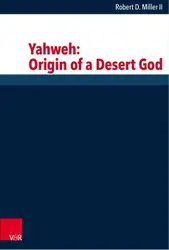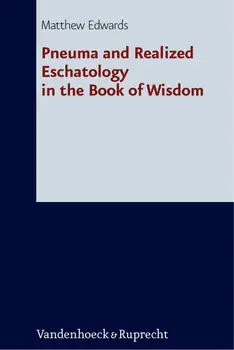The Book of Wisdom's understanding of Israel's history, of contemporary politics and of the immortal fate of the persecuted sage can be understood to be part of one theological system. This system integrates texts and concepts from Jewish Wisdom, the biblical narratives of the patriarchs from Adam to Moses, eschatological hope and apocalyptic language, an understanding of the spirit of God in the enabling of prophets and leaders and, most distinctively, the Stoic concept of pneuma. This last concept unites the biblical resources and allows Wisdom, using eschatological language, to speak of the ordering of the cosmos for the judgement for the wicked and the exaltation of God's people in the present age.Matthew Edwards addresses first the question of the literary unity of Wisdom. This is followed by an examination of the differing uses of the term pneuma within Wisdom, that is as divine agent of salvation, the means of the ordering the cosmos and the substance from which souls are composed. The nature of personal salvation within Wisdom is also considered and shown to be an integral part of the understanding of the cosmos, ordered for judgement and exaltation. Finally, this notion of the ordering of the comos and history for God's people is discussed with its consequences for Jewish life under contemporary Hellenistic and Roman rule.
Kom i gang med denne bog i dag for 0 kr.
- Få fuld adgang til alle bøger i appen i prøveperioden
- Ingen forpligtelser, opsiges når som helst
Forfatter:
Serie:
Forschungen zur Religion und Literatur des Alten und Neuen TestamentsSprog:
engelsk
Format:

Creation, Nature and Hope in 4 Ezra
Jonathan A. Moo
book
The Hebrew Bible in Light of the Dead Sea Scrolls
book
Christ Identity : A Social-Scientific Reading of Philippians 2.5-11
Sergio Rosell Nebreda
book
The Meaning of the Letter of Aristeas : In light of biblical interpretation and grammatical tradition, and with reference to its historical context
Ekaterina Matusova
book
"Who is like Yahweh?" : A Study of Divine Metaphors in the Book of Micah
Juan Cruz
book
Writing a Commentary on Leviticus : Hermeneutics – Methodology – Themes
book
Imperial Visions : The Prophet and the Book of Isaiah in an Age of Empires
book
The Synagogue in Ancient Palestine: Current Issues and Emerging Trends
book
Yahweh: Origin of a Desert God
Robert D. Miller Miller
book
Like Mount Zion : Conceptual Metaphor and Critical Spatiality in the Songs of Ascents
Wen-Pin Leow
book
I Appeared as El Shadday : Tracing the Origins of the God of Israel
Aleksander Krogevoll
book
How Prophecy Works : A Study of the Semantic Field of נביא and a Close Reading of Jeremiah 1:4–19, 23:9–40 and 27:1–28:17
William L. Kelly
book
